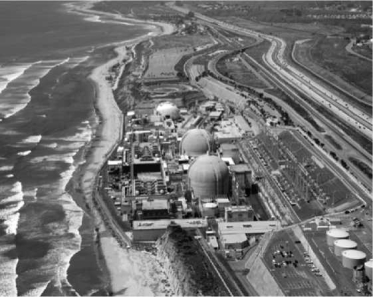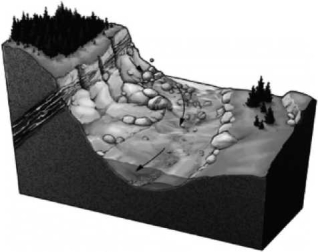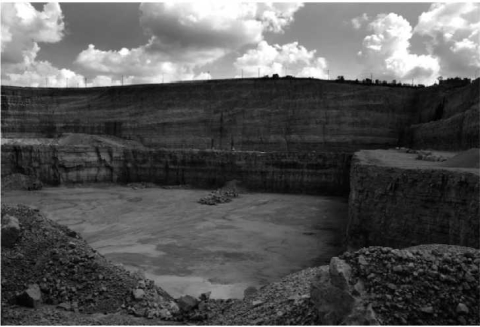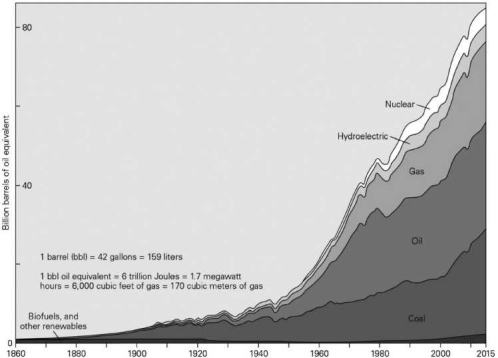Deck 11: Riches in Rock: Energy and Mineral Resources
Question
Question
Question
Question
Question
Question
Question
Question
Question
Question
Question
Question
Question
Question
Question
Question
Question
Question
Question
Question
Question
Question
Question
Question
Question
Question
Question
Question
Question
Question
Question
Question
Question
Question
Question
Question
Question
Question
Question
Question
Question
Question
Question
Question
Question
Question
Question
Question
Question
Question
Question
Question
Question
Question
Question
Question
Question
Question
Question
Question

Unlock Deck
Sign up to unlock the cards in this deck!
Unlock Deck
Unlock Deck
1/60
Play
Full screen (f)
Deck 11: Riches in Rock: Energy and Mineral Resources
1
If oil shale is buried deep enough to attain a temperature of 200°C, what is formed?
A) gas
B)oil
C)graphite
D)kerogen
A) gas
B)oil
C)graphite
D)kerogen
A
2
A ____________ rock would make the best reservoir rock in a conventional hydrocarbon system.
A)high-porosity, high-permeability
B)low-porosity, low-permeability
C)high-porosity, low-permeability
D)low-porosity, high-permeability
A)high-porosity, high-permeability
B)low-porosity, low-permeability
C)high-porosity, low-permeability
D)low-porosity, high-permeability
A
3
Source rocks are always sedimentary because sedimentary rocks
A)are the only rocks that contain fossils.
B)are most abundant at the surface.
C)contain pores for plankton to live in.
D)are the only rocks formed in the ocean.
A)are the only rocks that contain fossils.
B)are most abundant at the surface.
C)contain pores for plankton to live in.
D)are the only rocks formed in the ocean.
A
4
In the subsurface, natural gas
A)consists of longer carbon chains compared with oil.
B)is denser than oil and thus will float.
C)is generated at higher temperatures than oil.
D)is generated at higher temperatures than graphite.
A)consists of longer carbon chains compared with oil.
B)is denser than oil and thus will float.
C)is generated at higher temperatures than oil.
D)is generated at higher temperatures than graphite.

Unlock Deck
Unlock for access to all 60 flashcards in this deck.
Unlock Deck
k this deck
5
A buried body of rock that is induced by heat to exude oil is termed a ____________ rock.
A)reservoir
B)seal
C)source
D)trap
A)reservoir
B)seal
C)source
D)trap

Unlock Deck
Unlock for access to all 60 flashcards in this deck.
Unlock Deck
k this deck
6
Which sequence shows an increase in coal rank from lowest to highest?
A)anthracite, bituminous, lignite
B)lignite, bituminous, anthracite
C)bituminous, lignite, anthracite
D)bituminous, anthracite, lignite
A)anthracite, bituminous, lignite
B)lignite, bituminous, anthracite
C)bituminous, lignite, anthracite
D)bituminous, anthracite, lignite

Unlock Deck
Unlock for access to all 60 flashcards in this deck.
Unlock Deck
k this deck
7
Coal is formed when heat and pressure alter deposits of ancient
A)kerogen.
B)plankton.
C)terrestrial plants
D)tar.
A)kerogen.
B)plankton.
C)terrestrial plants
D)tar.

Unlock Deck
Unlock for access to all 60 flashcards in this deck.
Unlock Deck
k this deck
8
A black, organic-rich shale could likely serve as either of which two necessary types of rocks within oil fields?
A)source rock or seal rock
B)reservoir rock or seal rock
C)source rock or reservoir rock
D)reservoir rock but not source rock
A)source rock or seal rock
B)reservoir rock or seal rock
C)source rock or reservoir rock
D)reservoir rock but not source rock

Unlock Deck
Unlock for access to all 60 flashcards in this deck.
Unlock Deck
k this deck
9
Which organic substance is produced by black organic shale at temperatures below (cooler than) the oil window?
A)natural gas
B)coal
C)kerogen
D)keratin
A)natural gas
B)coal
C)kerogen
D)keratin

Unlock Deck
Unlock for access to all 60 flashcards in this deck.
Unlock Deck
k this deck
10
A reservoir rock contains ____________ porosity and permeability, whereas a seal rock contains ____________ porosity and permeability.
A)higher; lower
B)lower; higher
C)no; high
D)no; low
A)higher; lower
B)lower; higher
C)no; high
D)no; low

Unlock Deck
Unlock for access to all 60 flashcards in this deck.
Unlock Deck
k this deck
11
A large portion of the coal reserves in the world formed during the ____________ period.
A)Jurassic
B)Silurian
C)Carboniferous
D)Permian
A)Jurassic
B)Silurian
C)Carboniferous
D)Permian

Unlock Deck
Unlock for access to all 60 flashcards in this deck.
Unlock Deck
k this deck
12
If the average geothermal gradient in an area is 15°C/km, oil shale must be buried at depths of greater than ____________ but no more than ____________ to be transformed into oil.
A)10 km; 15 km
B)3 km; 6 km
C)6 km; 15 km
D)6 km; 10 km
A)10 km; 15 km
B)3 km; 6 km
C)6 km; 15 km
D)6 km; 10 km

Unlock Deck
Unlock for access to all 60 flashcards in this deck.
Unlock Deck
k this deck
13
What is an example of a conventional hydrocarbon reserve?
A)shale gas
B)tar sand
C)oil shale
D)crude oil
A)shale gas
B)tar sand
C)oil shale
D)crude oil

Unlock Deck
Unlock for access to all 60 flashcards in this deck.
Unlock Deck
k this deck
14
In which of these geologic settings are you most likely to find anthracite coal forming?
A)bottom of sedimentary basins
B)edges of mountain ranges
C)margins of igneous plutons
D)bottom of swampy areas
A)bottom of sedimentary basins
B)edges of mountain ranges
C)margins of igneous plutons
D)bottom of swampy areas

Unlock Deck
Unlock for access to all 60 flashcards in this deck.
Unlock Deck
k this deck
15
A landowner is looking to develop a coal mine on their property. She determines that a surface mine is the best option, as the coal seam she is targeting is close to the surface. The cost to start the mine is $20 million and the annual cost to operate is $16 million. She estimates that they can remove 450,000 tons of coal a year and sell the coal for $38.50 per ton. How long will it take before she is able to pay off her investment and start to make a profit?
A)15 months
B)15 years
C)1.15 years
D)115 months
A)15 months
B)15 years
C)1.15 years
D)115 months

Unlock Deck
Unlock for access to all 60 flashcards in this deck.
Unlock Deck
k this deck
16
Chemically, oil and gas are both
A)pure forms of carbon.
B)carbohydrates.
C)hydrocarbons.
D)carbonate minerals.
A)pure forms of carbon.
B)carbohydrates.
C)hydrocarbons.
D)carbonate minerals.

Unlock Deck
Unlock for access to all 60 flashcards in this deck.
Unlock Deck
k this deck
17
Which of the following would make the best reservoir rock in a conventional hydrocarbon system?
A)poorly-cemented shale
B)hydrofractured shale
C)poorly-cemented sandstone
D)well-cemented sandstone
A)poorly-cemented shale
B)hydrofractured shale
C)poorly-cemented sandstone
D)well-cemented sandstone

Unlock Deck
Unlock for access to all 60 flashcards in this deck.
Unlock Deck
k this deck
18
The classification of coal is based on the concentration of carbon in the rock. Which of the following chain of processes causes the concentration of carbon to increase?
A)burial decay of plant matter release of organic molecules concentration of carbon
B)burial chemical reactions release of gases concentration of carbon
C)decay of plant matter burial release of gases concentration of carbon
D)chemical reactions burial release of gases concentration of carbon
A)burial decay of plant matter release of organic molecules concentration of carbon
B)burial chemical reactions release of gases concentration of carbon
C)decay of plant matter burial release of gases concentration of carbon
D)chemical reactions burial release of gases concentration of carbon

Unlock Deck
Unlock for access to all 60 flashcards in this deck.
Unlock Deck
k this deck
19
Salt and fine-grained limestone are good candidates to serve as ____________ within an oil field.
A)a reservoir rock
B)a seal rock
C)a source rock
D)either a source rock or a reservoir rock
A)a reservoir rock
B)a seal rock
C)a source rock
D)either a source rock or a reservoir rock

Unlock Deck
Unlock for access to all 60 flashcards in this deck.
Unlock Deck
k this deck
20
What creates an easy route for oil to follow from the rock to a well?
A)hydrofracturing
B)seismic reflection
C)drilling mud
D)pumps
A)hydrofracturing
B)seismic reflection
C)drilling mud
D)pumps

Unlock Deck
Unlock for access to all 60 flashcards in this deck.
Unlock Deck
k this deck
21
The stereotypical gold rush prospector panning for gold in a streambed is an example of exploiting ____________ deposits.
A)magmatic
B)placer
C)residual mineral
D)sedimentary
A)magmatic
B)placer
C)residual mineral
D)sedimentary

Unlock Deck
Unlock for access to all 60 flashcards in this deck.
Unlock Deck
k this deck
22
What type of power uses flowing water to produce energy?
A) wind
B) geothermal
C)hydroelectric
D)nuclear
A) wind
B) geothermal
C)hydroelectric
D)nuclear

Unlock Deck
Unlock for access to all 60 flashcards in this deck.
Unlock Deck
k this deck
23
Fission occurs when a neutron strikes a radioactive parent atom, causing it to split into smaller daughter atoms and in the process releasing
A) protons.
B) anions.
C)energy.
D)electrons.
A) protons.
B) anions.
C)energy.
D)electrons.

Unlock Deck
Unlock for access to all 60 flashcards in this deck.
Unlock Deck
k this deck
24
Solar energy uses sunlight to induce a flow of ____________ between two wafers in a photovoltaic cell.
A)water
B)oxygen
C)light
D)electrons
A)water
B)oxygen
C)light
D)electrons

Unlock Deck
Unlock for access to all 60 flashcards in this deck.
Unlock Deck
k this deck
25
Which of the following is a nonmetal mineral formed by evaporation and used to make drywall?
A)sulfur
B)gypsum
C)zinc
D)marble
A)sulfur
B)gypsum
C)zinc
D)marble

Unlock Deck
Unlock for access to all 60 flashcards in this deck.
Unlock Deck
k this deck
26
The image below is of the San Onofre Nuclear Generating Station in Southern California, which was shut down in 2012 because of safety concerns. Which of the following alternative energy resources could be used in this environment to replace the energy generated by the nuclear power plant? 
A)geothermal
B)tidal
C)biomass
D)fuel cells

A)geothermal
B)tidal
C)biomass
D)fuel cells

Unlock Deck
Unlock for access to all 60 flashcards in this deck.
Unlock Deck
k this deck
27
Nuclear fission produces a large yield of energy; however, this energy is not in the form of electricity. What form of energy is produced by fission?
A) mechanical
B) thermal
C)chemical
D)gravitational
A) mechanical
B) thermal
C)chemical
D)gravitational

Unlock Deck
Unlock for access to all 60 flashcards in this deck.
Unlock Deck
k this deck
28
In what types of rocks are ore minerals found?
A)only in igneous rocks
B)only in igneous and sedimentary rocks
C)only in igneous and metamorphic rocks
D)in igneous, sedimentary, and metamorphic rocks
A)only in igneous rocks
B)only in igneous and sedimentary rocks
C)only in igneous and metamorphic rocks
D)in igneous, sedimentary, and metamorphic rocks

Unlock Deck
Unlock for access to all 60 flashcards in this deck.
Unlock Deck
k this deck
29
Which of the following occurs when a neutron strikes a radioactive parent atom?
A)fusion
B)fission
C)enrichment
D)atomic splicing
A)fusion
B)fission
C)enrichment
D)atomic splicing

Unlock Deck
Unlock for access to all 60 flashcards in this deck.
Unlock Deck
k this deck
30
Blocks of rock used in construction are termed
A)dimension stone.
B)gemstone.
C)ore.
D)lodestone
A)dimension stone.
B)gemstone.
C)ore.
D)lodestone

Unlock Deck
Unlock for access to all 60 flashcards in this deck.
Unlock Deck
k this deck
31
Consult the figure below. In what kind of terrain would you expect to find a placer deposit? 
A)a dry lake bed
B)a mountain peak
C)the ocean floor
D)a streambed

A)a dry lake bed
B)a mountain peak
C)the ocean floor
D)a streambed

Unlock Deck
Unlock for access to all 60 flashcards in this deck.
Unlock Deck
k this deck
32
In a nuclear reactor, failure of control rods may cause the system to become too hot and melt down because the control rods absorb ____________ and thus decrease the number of atoms undergoing ____________.
A)radiation; decay
B)radiation; fusion
C)neutrons; fission
D)neutrons; fusion
A)radiation; decay
B)radiation; fusion
C)neutrons; fission
D)neutrons; fusion

Unlock Deck
Unlock for access to all 60 flashcards in this deck.
Unlock Deck
k this deck
33
Geothermal energy is used extensively in Iceland and New Zealand because both countries host multiple
A)rivers.
B)mountains.
C)volcanoes.
D)coastlines.
A)rivers.
B)mountains.
C)volcanoes.
D)coastlines.

Unlock Deck
Unlock for access to all 60 flashcards in this deck.
Unlock Deck
k this deck
34
An array of panels situated in sunlight that can produce electricity are called
A)household solar collectors.
B)solar turbines.
C)photovoltaic cells.
D)sunlight collectors.
A)household solar collectors.
B)solar turbines.
C)photovoltaic cells.
D)sunlight collectors.

Unlock Deck
Unlock for access to all 60 flashcards in this deck.
Unlock Deck
k this deck
35
What type of energy would NOT be as useful in the Pacific Northwest as it would be in Texas?
A)wind
B)solar
C)nuclear
D)geothermal
A)wind
B)solar
C)nuclear
D)geothermal

Unlock Deck
Unlock for access to all 60 flashcards in this deck.
Unlock Deck
k this deck
36
Which of the following is NOT a likely environmental issue associated with mining operations (both underground and on the surface)?
A) acid mine runoff
B) acid rain
C)earthquakes
D)large manmade topographic depressions (holes) on Earth's surface
A) acid mine runoff
B) acid rain
C)earthquakes
D)large manmade topographic depressions (holes) on Earth's surface

Unlock Deck
Unlock for access to all 60 flashcards in this deck.
Unlock Deck
k this deck
37
The principal concern with storing nuclear waste is
A)allowing sufficient time for short-lived radioactive atoms to decay.
B)ensuring access to groundwater to keep the waste cool.
C)keeping spent fuel rods separated from other waste.
D)making biodegradable waste containers.
A)allowing sufficient time for short-lived radioactive atoms to decay.
B)ensuring access to groundwater to keep the waste cool.
C)keeping spent fuel rods separated from other waste.
D)making biodegradable waste containers.

Unlock Deck
Unlock for access to all 60 flashcards in this deck.
Unlock Deck
k this deck
38
The industrial process that separates metals from ore material is known as
A)quarrying.
B)mountaintop removal mining.
C)smelting.
D)ore processing
A)quarrying.
B)mountaintop removal mining.
C)smelting.
D)ore processing

Unlock Deck
Unlock for access to all 60 flashcards in this deck.
Unlock Deck
k this deck
39
U-235, the isotope of uranium commonly used in nuclear power plants, is
A)the most common of the naturally occurring isotopes of uranium.
B)heavier than the other well-known isotope of uranium.
C)rare even in uranium-rich deposits and must be enriched to use as fuel.
D)only found in quartz veins in granite plutons.
A)the most common of the naturally occurring isotopes of uranium.
B)heavier than the other well-known isotope of uranium.
C)rare even in uranium-rich deposits and must be enriched to use as fuel.
D)only found in quartz veins in granite plutons.

Unlock Deck
Unlock for access to all 60 flashcards in this deck.
Unlock Deck
k this deck
40
A mineral that consists of only metal atoms is known as a(n) ____________ metal.
A)native
B)ore
C)industrial
D)rare earth
A)native
B)ore
C)industrial
D)rare earth

Unlock Deck
Unlock for access to all 60 flashcards in this deck.
Unlock Deck
k this deck
41
Limestone is often used as dimension stone and also as crushed stone. If a mining company wishes to establish a new limestone quarry, what type of depositional environment should they look for in the rock record?
A)deep marine
B)coastal estuaries
C)shallow marine
D)desert playa lakes
A)deep marine
B)coastal estuaries
C)shallow marine
D)desert playa lakes

Unlock Deck
Unlock for access to all 60 flashcards in this deck.
Unlock Deck
k this deck
42
What are biofuels? Identify some examples of biofuels.

Unlock Deck
Unlock for access to all 60 flashcards in this deck.
Unlock Deck
k this deck
43
Nonrenewable energy resources have adverse environmental impacts and will eventually run out. Analyze why they are still used so prevalently in our society.

Unlock Deck
Unlock for access to all 60 flashcards in this deck.
Unlock Deck
k this deck
44
Which of the following nonmetallic resources has an igneous origin?
A)salt
B)granite
C)limestone
D)gypsum
A)salt
B)granite
C)limestone
D)gypsum

Unlock Deck
Unlock for access to all 60 flashcards in this deck.
Unlock Deck
k this deck
45
A resource is considered renewable if
A)it is used at rates greater than it is naturally replaced.
B) nature can replace it within a short time span relative to human life.
C) nature can replace it within hundreds or thousands of years.
D)nature can replace it within a million years.
A)it is used at rates greater than it is naturally replaced.
B) nature can replace it within a short time span relative to human life.
C) nature can replace it within hundreds or thousands of years.
D)nature can replace it within a million years.

Unlock Deck
Unlock for access to all 60 flashcards in this deck.
Unlock Deck
k this deck
46
What is a seismic reflection profile? Summarize how they can be used in oil exploration.

Unlock Deck
Unlock for access to all 60 flashcards in this deck.
Unlock Deck
k this deck
47
Explain Hubbert's Peak. What implications does it have for the future of human civilization?

Unlock Deck
Unlock for access to all 60 flashcards in this deck.
Unlock Deck
k this deck
48
Distinguish between cement and concrete. Explain how cement is produced. Describe why cement and concrete are so important to society.

Unlock Deck
Unlock for access to all 60 flashcards in this deck.
Unlock Deck
k this deck
49
Which of the following lists contains only fossil fuels?
A) coal, oil, natural gas
B) coal, geothermal, wind
C) nuclear, wood, natural gas
D) hydroelectric, geothermal, wind
A) coal, oil, natural gas
B) coal, geothermal, wind
C) nuclear, wood, natural gas
D) hydroelectric, geothermal, wind

Unlock Deck
Unlock for access to all 60 flashcards in this deck.
Unlock Deck
k this deck
50
The image below is of a limestone quarry in Illinois. On the wall at the very back of the quarry you can see geologic strata that appear to curve upward. What type of depositional environment do these layers represent? 
A)lines made by the miners as they remove material
B)cross-bedding produced at eolian sand dunes
C)layers of deep marine, sedimentary basin deposits
D)layers of shallow marine, continental shelf deposits

A)lines made by the miners as they remove material
B)cross-bedding produced at eolian sand dunes
C)layers of deep marine, sedimentary basin deposits
D)layers of shallow marine, continental shelf deposits

Unlock Deck
Unlock for access to all 60 flashcards in this deck.
Unlock Deck
k this deck
51
In 1900, the most commonly used source of energy in the United States was 
A) coal.
B) oil.
C)natural gas.
D)hydrothermal.

A) coal.
B) oil.
C)natural gas.
D)hydrothermal.

Unlock Deck
Unlock for access to all 60 flashcards in this deck.
Unlock Deck
k this deck
52
Gold is often found at the bottom of streambeds in placer deposits. Describe the process that forms these deposits.

Unlock Deck
Unlock for access to all 60 flashcards in this deck.
Unlock Deck
k this deck
53
Categorize the differences between a renewable and nonrenewable resource. What are some examples of each?

Unlock Deck
Unlock for access to all 60 flashcards in this deck.
Unlock Deck
k this deck
54
Describe how oil is formed. Make sure to address what organisms must accumulate, in what environment they must be deposited, and how the oil window effects the formation.

Unlock Deck
Unlock for access to all 60 flashcards in this deck.
Unlock Deck
k this deck
55
Explain how coal forms and how this process is different from the ones that yield oil and gas.

Unlock Deck
Unlock for access to all 60 flashcards in this deck.
Unlock Deck
k this deck
56
Most mineral resources are considered to be and may present a strategic challenge globally because.
A)nonrenewable; they are not uniformly distributed on Earth
B)nonrenewable; all nations possess roughly equal and significant reserves
C)renewable; they are not uniformly distributed on Earth
D)renewable; all nations possess roughly equal and significant reserves
A)nonrenewable; they are not uniformly distributed on Earth
B)nonrenewable; all nations possess roughly equal and significant reserves
C)renewable; they are not uniformly distributed on Earth
D)renewable; all nations possess roughly equal and significant reserves

Unlock Deck
Unlock for access to all 60 flashcards in this deck.
Unlock Deck
k this deck
57
Mineral resources are
A)renewable because they are naturally formed.
B)renewable because we use them at slower rates than they are formed.
C)nonrenewable because they are formed at slower rates than we use them.
D)nonrenewable because they are no longer formed.
A)renewable because they are naturally formed.
B)renewable because we use them at slower rates than they are formed.
C)nonrenewable because they are formed at slower rates than we use them.
D)nonrenewable because they are no longer formed.

Unlock Deck
Unlock for access to all 60 flashcards in this deck.
Unlock Deck
k this deck
58
Explain how sources of energy for society have changed over time.

Unlock Deck
Unlock for access to all 60 flashcards in this deck.
Unlock Deck
k this deck
59
Stone used for buildings, chemicals in fertilizers, and sand used to make glass are all examples of mineral resources known as
A)tailings.
B)industrial minerals.
C)clinker.
D)slag.
A)tailings.
B)industrial minerals.
C)clinker.
D)slag.

Unlock Deck
Unlock for access to all 60 flashcards in this deck.
Unlock Deck
k this deck
60
Most energy for human consumption in the industrial world comes from
A)fossil fuels.
B)wind.
C)nuclear power.
D)water.
A)fossil fuels.
B)wind.
C)nuclear power.
D)water.

Unlock Deck
Unlock for access to all 60 flashcards in this deck.
Unlock Deck
k this deck


